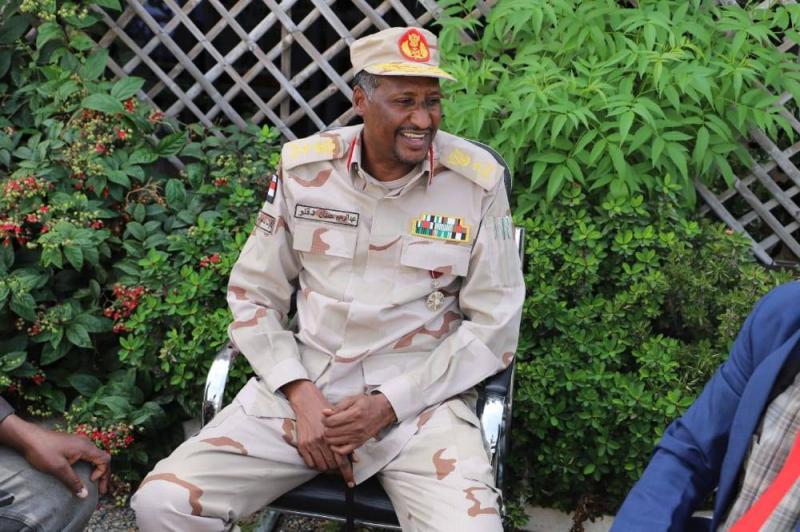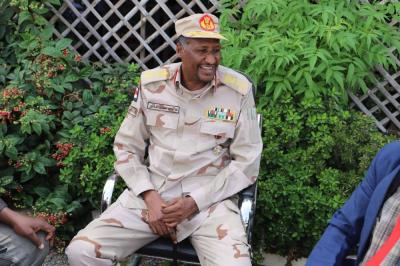In a first-of-its-kind decision, the United States imposed sanctions on the Deputy Commander of the Rapid Support Forces in Sudan, Abdel Rahim Hamdan Daglo. This decision raises questions about why the U.S. is sanctioning the deputy instead of the main figure, "Daglo". Is there intelligence regarding "Daglo's" death, despite repeated denials in this context? The U.S. Treasury clarified in a statement on Wednesday that it has sanctioned Abdel Rahim for leading the Rapid Support Forces, which is described as "an entity whose members have participated in acts of violence and human rights violations, including massacres against civilians, ethnic killings, and the use of sexual violence."
The statement indicated that "Daglo" will be banned from accessing all properties and interests registered under his name in the U.S. After staying away from the spotlight before the conflict, he appeared in video messages early in the fighting, surrounded by Rapid Support Forces, urging Sudanese army soldiers to flee. Prior to that, Abdel Rahim was among the leaders of the Rapid Support Forces who played a key role in the events following the uprising against Bashir in 2018.
During the trial of the former president on corruption charges, his former chief of staff said Bashir had handed over 5 million euros to the Rapid Support Forces, and that he transferred the funds to Abdel Rahim Daglo without receiving a receipt. "Daglo" faced accusations of ordering the dispersal of the Sudanese protesters' sit-in in 2019 in front of the army’s general command, with the BBC reporting testimony from a commander in the forces who claimed he issued the order to disperse the sit-in, though this remains unconfirmed and he has denied it multiple times.
In a previous interview with "Asharq Al-Awsat," Daglo stated that the force that dispersed the sit-in "is not unruly as it is portrayed, but rather it received orders from a conspiratorial person seeking to disperse the sit-in and tarnish the reputation of the Rapid Support Forces." In August, the UN special representative on sexual violence in conflict, Pramila Patten, met with Abdel Rahim Daglo, expressing "serious concerns about the increasing sexual violence in Khartoum and Darfur, including cases involving armed actors linked to the Rapid Support Forces."
According to notes reviewed by Reuters, U.S. Ambassador to the UN Linda Thomas-Greenfield will inform reporters during her visit to Chad that sanctions will be imposed on him "for his association with the violations committed by the Rapid Support Forces against civilians in Sudan, including acts of sexual violence related to the conflict and killings based on ethnic affiliation."
Mohammad Daglo and Abdel Rahim Daglo control numerous gold mines in Sudan, according to reports, including one from the nonprofit Global Witness. The U.S. Treasury had imposed sanctions in June on "Al Junaid for Multi-Activities Limited Liability Company," stating it is "a Sudanese holding company controlled by the two brothers." The company is headquartered in Khartoum and operates 11 subsidiaries across various economic sectors, including gold mining, according to the Treasury.
The sanctions were imposed "for its responsibility in participating or attempting to participate in acts or policies that threaten peace, security, and stability in Sudan, or its complicity in such actions, directly or indirectly." Global Witness indicates there are close ties between the sanctioned company and the Rapid Support Forces and claims it obtained a leaked document showing the forces made payments to the company, including payments to settle debts. In response to a Reuters investigation on this matter, the company’s CEO denied any connection to the Rapid Support Forces, stating that "Al Junaid Group is far removed from the Rapid Support Forces." The same investigation revealed that Hemeti transferred millions of dollars worth of gold abroad through "Al Junaid."




